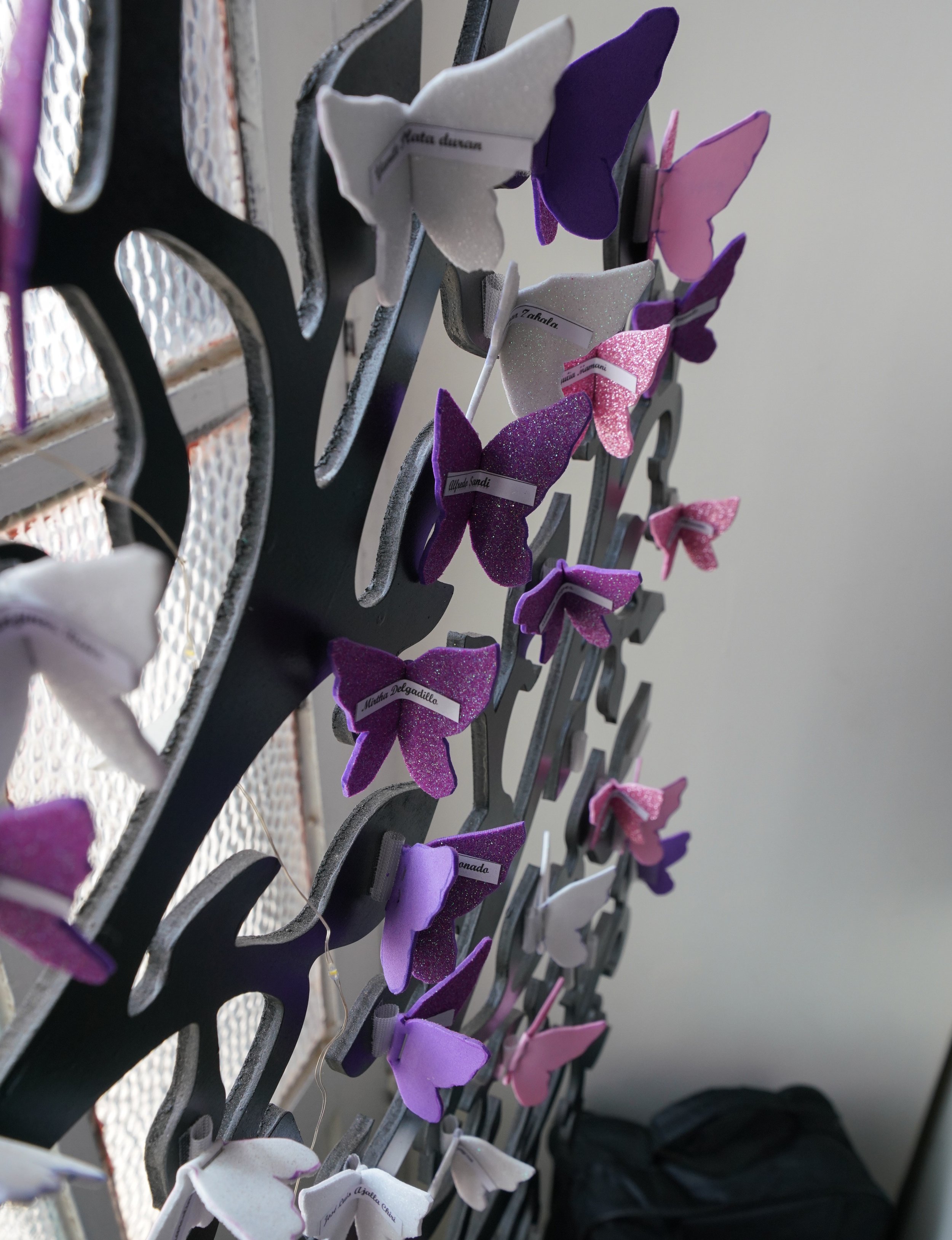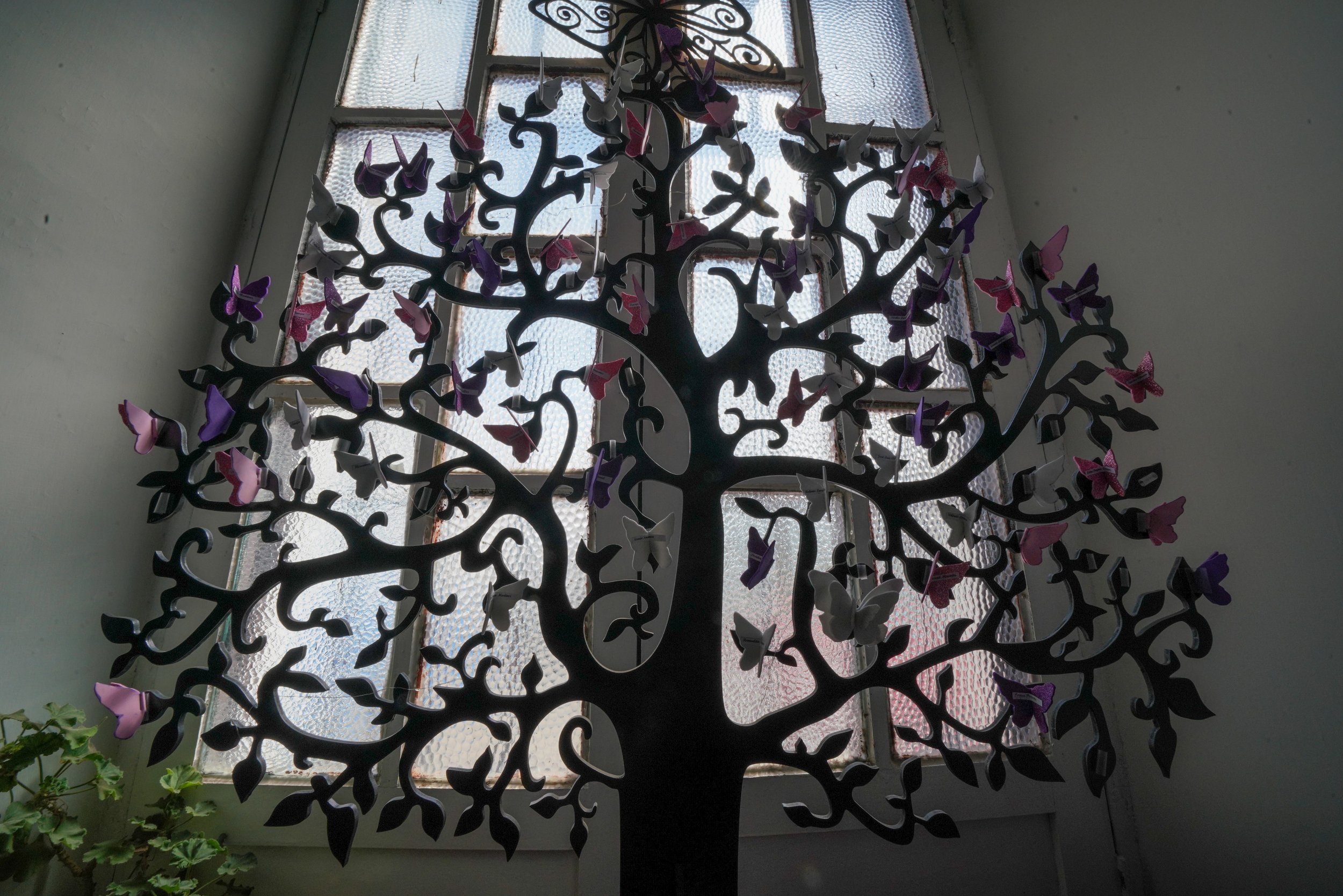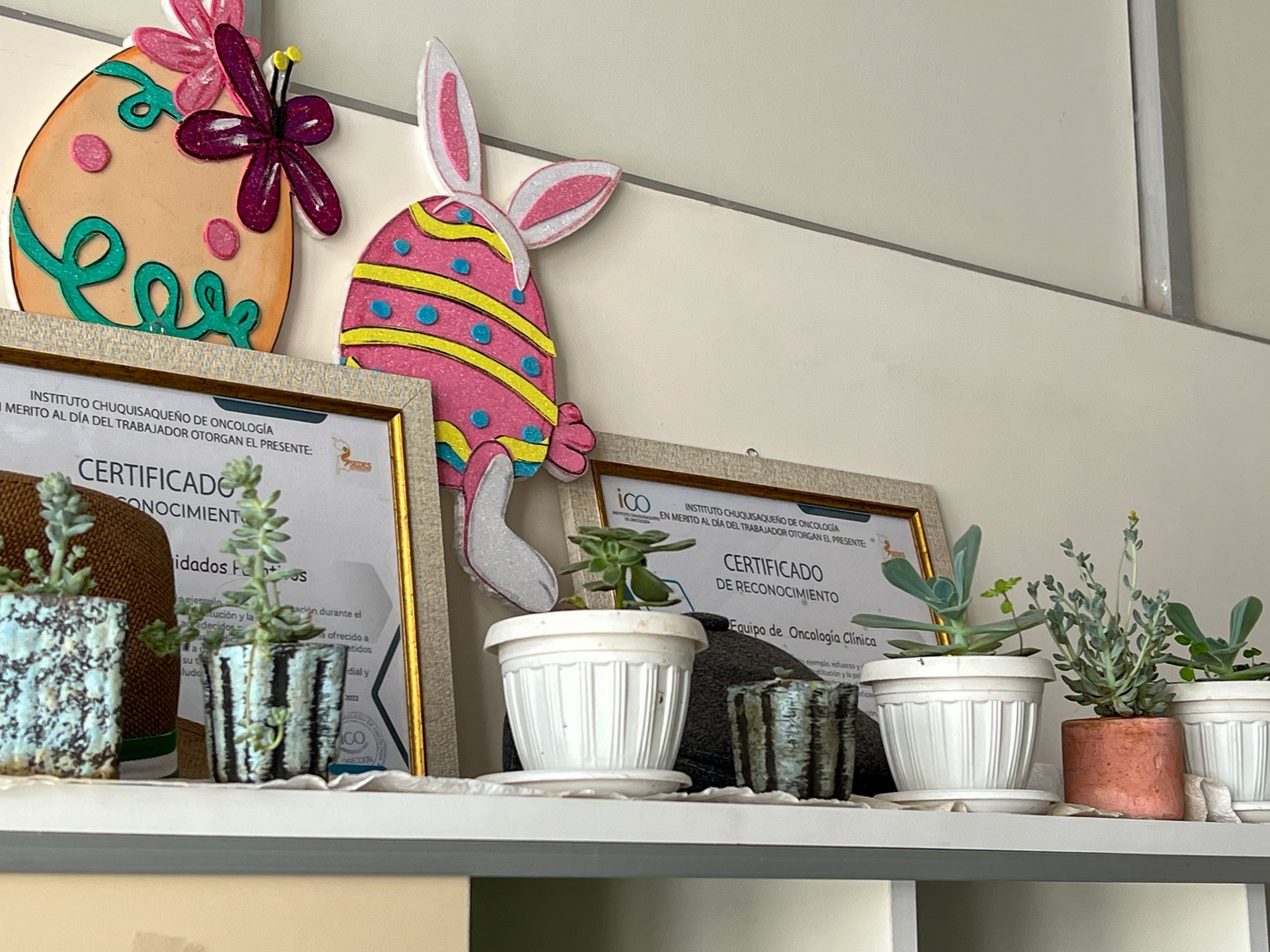Another Bolivia is Possible: Dreaming in Sucre
Written by Megan Kennedy-Farrell, Senior Director for Mission & Identity
“Every time I think of you, I think another Bolivia is possible.” Patricia Vargas, Executive Director of Puente de Solidaridad, offered these words of affirmation and respect to our colleagues at the Instituto Chuquisaqueño de Oncología (ICO). It was our first morning at the hospital, and we had gathered for a welcome and introduction to the history and mission of the ICO.
At just 7 years old, the ICO is already creating “another Bolivia.” When they share the story of the founding of the hospital, the doctors don’t describe a project or even a mission. They talk of a dream. This dream began in 2015 when a group of committed, passionate doctors saw a deep need: “there was no public place in the department of Chuquisaca for cancer treatment, and people were dying,” Dr. Rocío Luján explained as she led the opening ceremony. They knew another way was possible. They found a vacant decrepit building (built in 1894), but there was no money to transform it into a hospital, so the doctors and nurses (who they proudly pointed out were “mostly women”) did the work themselves. Today, the ICO has two top-rate operating rooms and a pathology lab which has been named the central lab for the entire region in recognition of its quality. For the team of doctors, nurses, laboratory technicians, and others, this is not just a workplace or even just a hospital. This former dream—now reality—“is ours…this is our home.”
The ICO leadership lamented that many authorities in Bolivia do not see cancer as a pressing issue. Because of a scarcity of early detection and treatment resources, most cancer patients in Bolivia are diagnosed at very advanced stages, and cancer is therefore generally equated with a death sentence. It may be understandable, then, that a government with limited resources might not prioritize the tremendous expenses of cancer treatment.
But in the face of those immense obstacles, the ICO personnel are living a different reality. “We are fighting for education, prevention, and early treatment… we know that cancer is treatable and that patients can live longer lives,” explained Dr. Luján. It is that belief that motivated the doctors at the ICO to invite gynecologic oncologist Dr. Erin Stevens and surgical nurse Jessica Waldo to visit the ICO this week to offer advanced training in complex surgical techniques.
The ICO is also among the first institutions in Bolivia to promote palliative care. They “do a silent and anonymous work.” For patients in their final days, the palliative care team visits them in their homes, humanizing death and giving them dignity. They also take the time to listen to the final wishes of patients—whether it is to renew their wedding vows, or make it to a daughter’s 15th birthday—and they do what they can to help them live out those wishes.
As we toured the palliative care office, our mission team was moved by the explanation of the concrete symbols used both with patients living through cancer treatment and the families and caregivers who mourn the loss of loved ones who have died from cancer. The office shelf is adorned with small potted succulents, and there is a large metal tree of life on the light-filled windowsill with almost 200 pink and purple butterflies attached. Each patient who receives cancer treatment at the ICO is gifted a succulent to symbolize the struggle for life and living within that struggle. When a patient dies, the medical community and family who have cared for them put their name on a butterfly and attach it to the tree of life, “to symbolize transformation and transcendence”.
The ICO team has a prophetic presence in Sucre and the surrounding area, living the realities of life with cancer as well as death. They shared with us the importance of their patients who are in recovery. “These survivors of cancer are our life teachers. And they are leaders sharing their stories and experiences with other patients.”
Our team is grateful to be among those learning from the patients, doctors, nurses, and administrators at the ICO this week. We have been inspired by the lessons we have already been taught. We are even inspired to dream ourselves. Perhaps another world is indeed possible!






